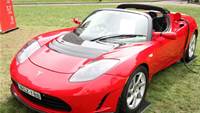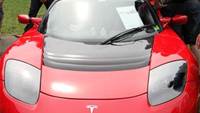The prevalence of unstructured data traversing the smart grid presents a "huge threat" to the security of those networks, a security conference heard today.
Responding to questions at the Ecrime Symposium in Sydney, Raytheon solutions architect Martin Tucek said data in transit on next-generation utitlities' networks was a fertile, as yet largely untapped seam of information for malicious hackers.
"The trend of the threat right now is not necessarily the hackers hacking into a [computer] system but attacking the data in motion [over the network]," Tucek said.
He said industry forecasts predicted utilities would soon be shifting data "not in terabytes or 10s of terabytes [but] zettabytes".
The smart grid was the coming renewal of our utility networks, infused with intelligent sensors to protect against failure, heal after catastrophe and bill more accurately for services.
Tucek, who was an expert in cross-domain data flows, said "streaming data was very vulnerable to attack, it's information that's not well protected".
"Not having structured data, it's very difficult to identify what we're dealing with and how to manage it. It's definitely a huge threat for industry."
If organisations couldn't determine the source of information flows, "where they go, who has access, who is the recipient", then they faced an unmanageable risk, he said.
He proposed organisations institute a new role or responsibility, the data security officer, to protect their information regardless of how it flowed over networks or where it sat once it got to its destination.
Symantec director of security and compliance Sean Kopelke said he was in two minds about the risks data posed to the smart grid: "A lot of people's response and mine is it's extremely scary but I think it's [also] fantastic".
Kopelke said the added convenience and opportunity for lower utility bills balanced the increased risk of data theft and its attendant issues such as identity fraud.
Fears were heightened that malicious hackers could gain control of critical infrastructure such as traffic lights, which could cause calamity, he said.
But a fresh generation weaned on Facebook was coming through that was more relaxed about privacy, he said.

.jpg&h=420&w=748&c=0&s=0)





_(20).jpg&h=140&w=231&c=1&s=0)

.png&h=140&w=231&c=1&s=0)




_(26).jpg&w=100&c=1&s=0)

 iTnews Executive Retreat - Security Leaders Edition
iTnews Executive Retreat - Security Leaders Edition












_(1).jpg&h=140&w=231&c=1&s=0)



